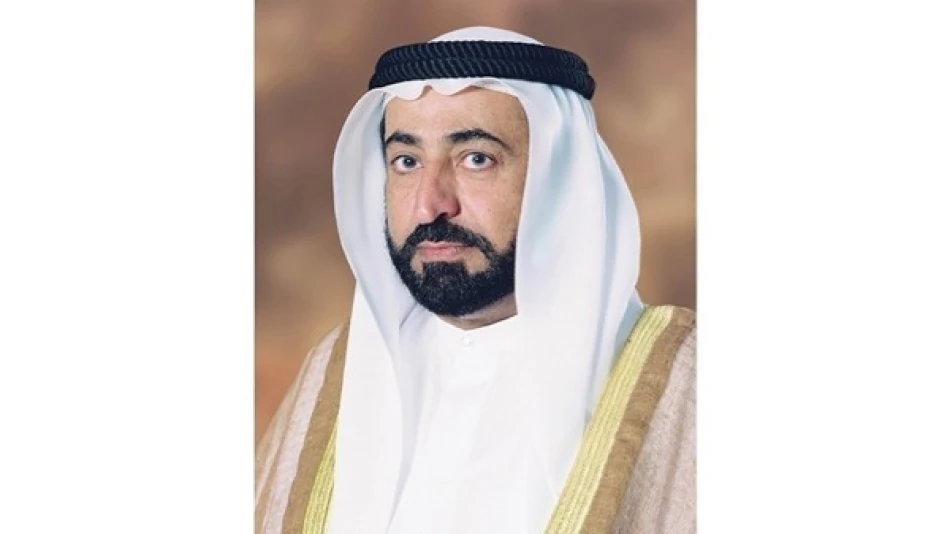
Sharjah Ruler Appoints Maryam Al Shamsi as Head of Social Services Department
Sharjah Elevates Social Services Leadership as UAE Continues Administrative Modernization
His Highness Sheikh Dr. Sultan bin Muhammad Al Qasimi, Ruler of Sharjah, has promoted Maryam Majed Saeed Al Shamsi to head the emirate's Department of Social Services, marking another step in the UAE's ongoing efforts to strengthen government efficiency and expand women's leadership roles in public administration.
Strategic Appointment Reflects Broader UAE Governance Trends
The royal decree elevates Al Shamsi from her previous role as department director to the senior position of department head within Sharjah's special positions system. Her new role automatically grants her membership in Sharjah's Executive Council, positioning her among the emirate's key decision-makers.
This promotion aligns with the UAE's broader Vision 2071 strategy, which emphasizes government excellence and increased female participation in leadership positions. The move demonstrates Sharjah's commitment to continuity in social services while potentially signaling an expansion of the department's mandate under new leadership.
Social Services Department's Growing Importance
Al Shamsi's elevation comes at a time when social services departments across the UAE are gaining prominence due to demographic shifts and economic diversification efforts. With the UAE's population growing and aging, coupled with increased focus on citizen welfare as part of the post-oil economy transition, social services leadership has become increasingly strategic.
Expanded Authority and Responsibilities
Under the decree, Al Shamsi will assume all responsibilities of her predecessor and automatically inherit leadership and membership roles in various government councils and committees throughout Sharjah. This broad mandate suggests the position carries significant influence over the emirate's social policy direction.
Women's Leadership Momentum Continues
The appointment reinforces the UAE's track record of promoting women to senior government positions. Currently, women hold approximately 66% of government jobs in the UAE and occupy senior roles across federal and local administrations. Sharjah, in particular, has been notable for its progressive approach to women's empowerment under Sheikh Sultan's leadership.
This trend mirrors similar developments across the Gulf region, where countries like Saudi Arabia and Kuwait have significantly expanded women's roles in government and business sectors over the past decade.
Implications for Sharjah's Social Policy Direction
Al Shamsi's promotion from within suggests continuity in current social services policies while potentially bringing fresh perspectives to the role. Her Executive Council membership means social services considerations will have direct representation in Sharjah's highest decision-making body, potentially elevating the department's influence over broader emirate policies.
The timing of this appointment may also reflect preparation for upcoming social challenges, including youth employment programs, elderly care services, and family support systems that are becoming increasingly important as the UAE's society evolves.
Most Viewed News

 Layla Al Mansoori
Layla Al Mansoori






